| Weight | 1 lbs |
|---|---|
| Dimensions | 9 × 5 × 2 in |
| host | mouse |
| isotype | IgG2a |
| clonality | monoclonal |
| concentration | 1 mg/mL |
| applications | ICC/IF, WB |
| reactivity | JAB-1 |
| available sizes | 100 µg |
mouse anti-JAB-1 monoclonal antibody (8H8.5) 4717
$503.00
Antibody summary
- Mouse monoclonal to JAB-1
- Suitable for: WB,IP
- Isotype: IgG2a
- 100 µg
mouse anti-JAB-1 monoclonal antibody (8H8.5) 4717
| antibody |
|---|
| Tested applications WB,IP |
| Recommended dilutions Immunoblotting and Immunoprecipitation: use at 0.5-1 ug/mL. Positive controls: 293 cells and recombinant fusion protein. |
| Immunogen Mouse JAB-1 gst-fusion protein (aa 1-334) expressed in E. coli. |
| Size and concentration 100µg and lot specific |
| Form liquid |
| Storage Instructions This antibody is stable for at least one (1) year at -20°C. Avoid multiple freeze- thaw cycles. |
| Storage buffer PBS, pH 7.4. |
| Purity affinity purified |
| Clonality monoclonal |
| Isotype IgG2a |
| Compatible secondaries goat anti-mouse IgG, H&L chain specific, peroxidase conjugated polyclonal antibody 5486 goat anti-mouse IgG, H&L chain specific, biotin conjugated, Conjugate polyclonal antibody 2685 goat anti-mouse IgG, H&L chain specific, FITC conjugated polyclonal antibody 7854 goat anti-mouse IgG, H&L chain specific, peroxidase conjugated polyclonal antibody, crossabsorbed 1706 goat anti-mouse IgG, H&L chain specific, biotin conjugated polyclonal antibody, crossabsorbed 1716 goat anti-mouse IgG, H&L chain specific, FITC conjugated polyclonal antibody, crossabsorbed 1721 |
| Isotype control Mouse monocolonal IgG2a - Isotype Control |
| target relevance |
|---|
| Protein names COP9 signalosome complex subunit 5 (SGN5) (Signalosome subunit 5) (EC 3.4.-.-) (Jun activation domain-binding protein 1) |
| Gene names COPS5,COPS5 CSN5 JAB1 |
| Protein family Peptidase M67A family, CSN5 subfamily |
| Mass 37579Da |
| Function FUNCTION: Probable protease subunit of the COP9 signalosome complex (CSN), a complex involved in various cellular and developmental processes. The CSN complex is an essential regulator of the ubiquitin (Ubl) conjugation pathway by mediating the deneddylation of the cullin subunits of the SCF-type E3 ligase complexes, leading to decrease the Ubl ligase activity of SCF-type complexes such as SCF, CSA or DDB2. The complex is also involved in phosphorylation of p53/TP53, c-jun/JUN, IkappaBalpha/NFKBIA, ITPK1 and IRF8, possibly via its association with CK2 and PKD kinases. CSN-dependent phosphorylation of TP53 and JUN promotes and protects degradation by the Ubl system, respectively. In the complex, it probably acts as the catalytic center that mediates the cleavage of Nedd8 from cullins. It however has no metalloprotease activity by itself and requires the other subunits of the CSN complex. Interacts directly with a large number of proteins that are regulated by the CSN complex, confirming a key role in the complex. Promotes the proteasomal degradation of BRSK2. {ECO:0000269|PubMed:11285227, ECO:0000269|PubMed:11337588, ECO:0000269|PubMed:12628923, ECO:0000269|PubMed:12732143, ECO:0000269|PubMed:19214193, ECO:0000269|PubMed:20978819, ECO:0000269|PubMed:22609399, ECO:0000269|PubMed:9535219}. |
| Subellular location SUBCELLULAR LOCATION: Cytoplasm, cytosol {ECO:0000269|PubMed:17050680, ECO:0000269|PubMed:20978819, ECO:0000269|PubMed:22609399, ECO:0000269|PubMed:9535219}. Nucleus {ECO:0000269|PubMed:17050680, ECO:0000269|PubMed:20978819, ECO:0000269|PubMed:22609399}. Cytoplasm, perinuclear region {ECO:0000269|PubMed:9535219}. Cytoplasmic vesicle, secretory vesicle, synaptic vesicle {ECO:0000269|PubMed:21102408}. Note=Nuclear localization is diminished in the presence of IFIT3. {ECO:0000269|PubMed:17050680}. |
| Structure SUBUNIT: Component of the CSN complex, composed of COPS1/GPS1, COPS2, COPS3, COPS4, COPS5, COPS6, COPS7 (COPS7A or COPS7B), COPS8 and COPS9 isoform 1 (PubMed:26456823). In the complex, it probably interacts directly with COPS1, COPS2, COPS4, COPS6 and COPS7 (COPS7A or COPS7B) and COPS9 isoform 1 (PubMed:26456823). Interacts with COPS9 isoform 2 (PubMed:23776465). The CSN complex interacts with the BRISC complex. Also exists as monomeric form. Interacts with TP53, MIF, JUN, UCHL1, NCOA1, HIF1A, CDKN1B, BCL3, GFER, PGR, LHCGR, SMAD4, SMAD7, ID1, ID3, ITGB2 and TOP2A. Part of a complex consisting of RANBP9, Ran, DYRK1B and COPS5. Interacts with IFIT3. Interacts with BRSK2. Interacts with ZDHHC16 (PubMed:17123647). Interacts with MINDY3 (PubMed:21499297). Interacts with FANK1; regulates the phosphorylation of JUN and the transcriptional activity of AP-1 (PubMed:20978819). Interacts with NUPR1; this interaction allows COPS5-dependent CDKN1B nuclear to cytoplasm translocation (PubMed:16300740). {ECO:0000269|PubMed:10362352, ECO:0000269|PubMed:10722692, ECO:0000269|PubMed:10766246, ECO:0000269|PubMed:11089976, ECO:0000269|PubMed:11285227, ECO:0000269|PubMed:11709497, ECO:0000269|PubMed:11818334, ECO:0000269|PubMed:12082530, ECO:0000269|PubMed:14500717, ECO:0000269|PubMed:14993265, ECO:0000269|PubMed:15126503, ECO:0000269|PubMed:16300740, ECO:0000269|PubMed:17050680, ECO:0000269|PubMed:17123647, ECO:0000269|PubMed:18850735, ECO:0000269|PubMed:19214193, ECO:0000269|PubMed:20978819, ECO:0000269|PubMed:21499297, ECO:0000269|PubMed:22609399, ECO:0000269|PubMed:23776465, ECO:0000269|PubMed:26456823, ECO:0000269|PubMed:8837781}. |
| Domain DOMAIN: The JAMM motif is essential for the protease activity of the CSN complex resulting in deneddylation of cullins. It constitutes the catalytic center of the complex (By similarity). {ECO:0000250}. |
| Target Relevance information above includes information from UniProt accession: Q92905 |
| The UniProt Consortium |
Data
Publications
Warning: Cannot modify header information - headers already sent by (output started at /www/benchmarkantibodiescom_769/public/wp-includes/script-loader.php:3015) in /www/benchmarkantibodiescom_769/public/wp-content/plugins/shortcode-manager/shortcode-manager.php(453) : eval()'d code on line 3
Publications
| pmid | title | authors | citation |
|---|---|---|---|
| We haven't added any publications to our database yet. | |||
Protocols
| relevant to this product |
|---|
| Western blot |
Documents
| # | SDS | Certificate | |
|---|---|---|---|
| Please enter your product and batch number here to retrieve product datasheet, SDS, and QC information. | |||
Only logged in customers who have purchased this product may leave a review.



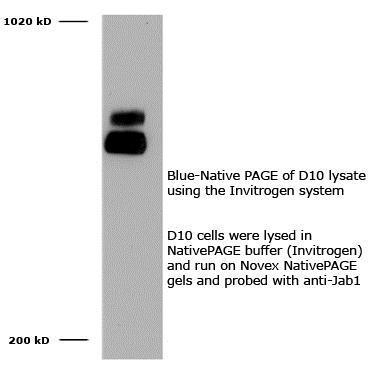
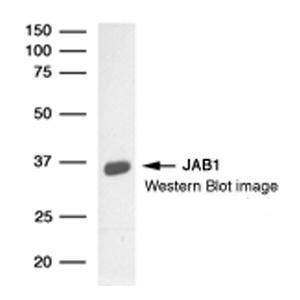
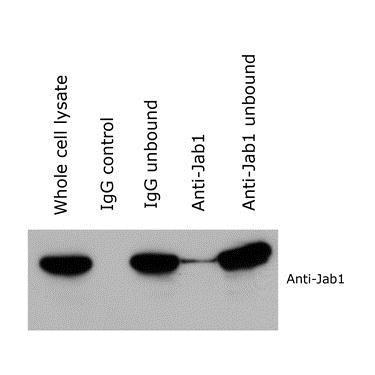
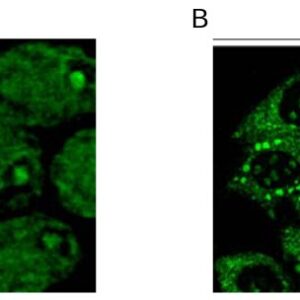
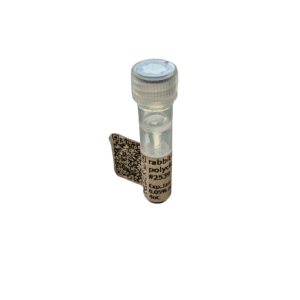
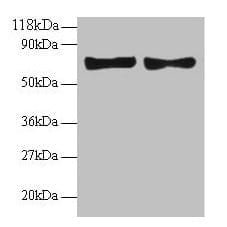
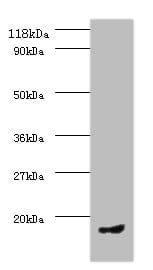

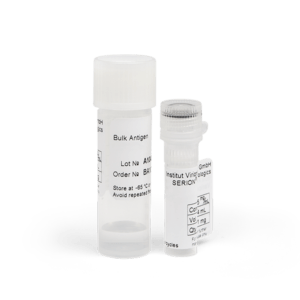
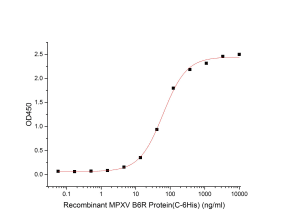
Reviews
There are no reviews yet.